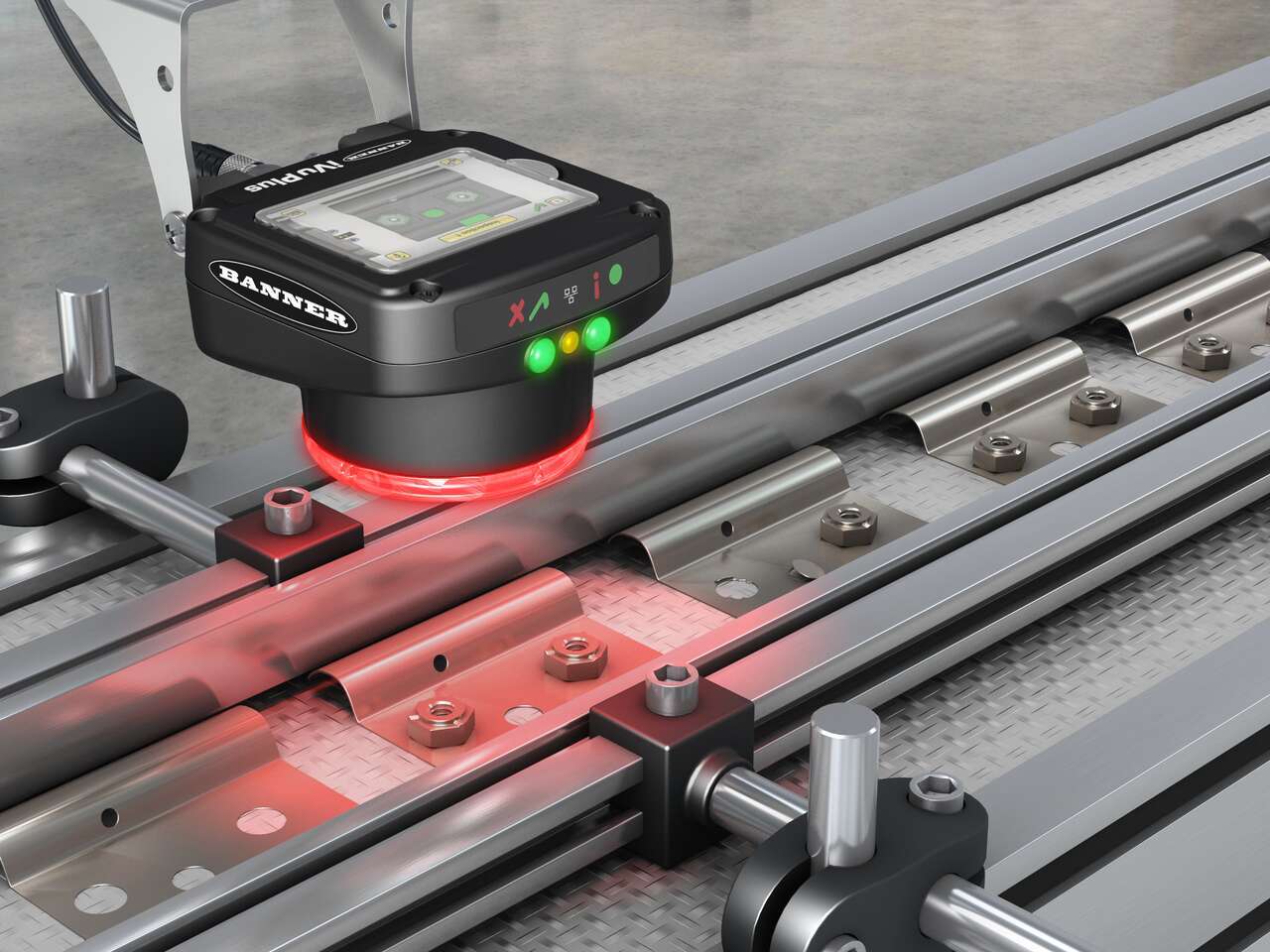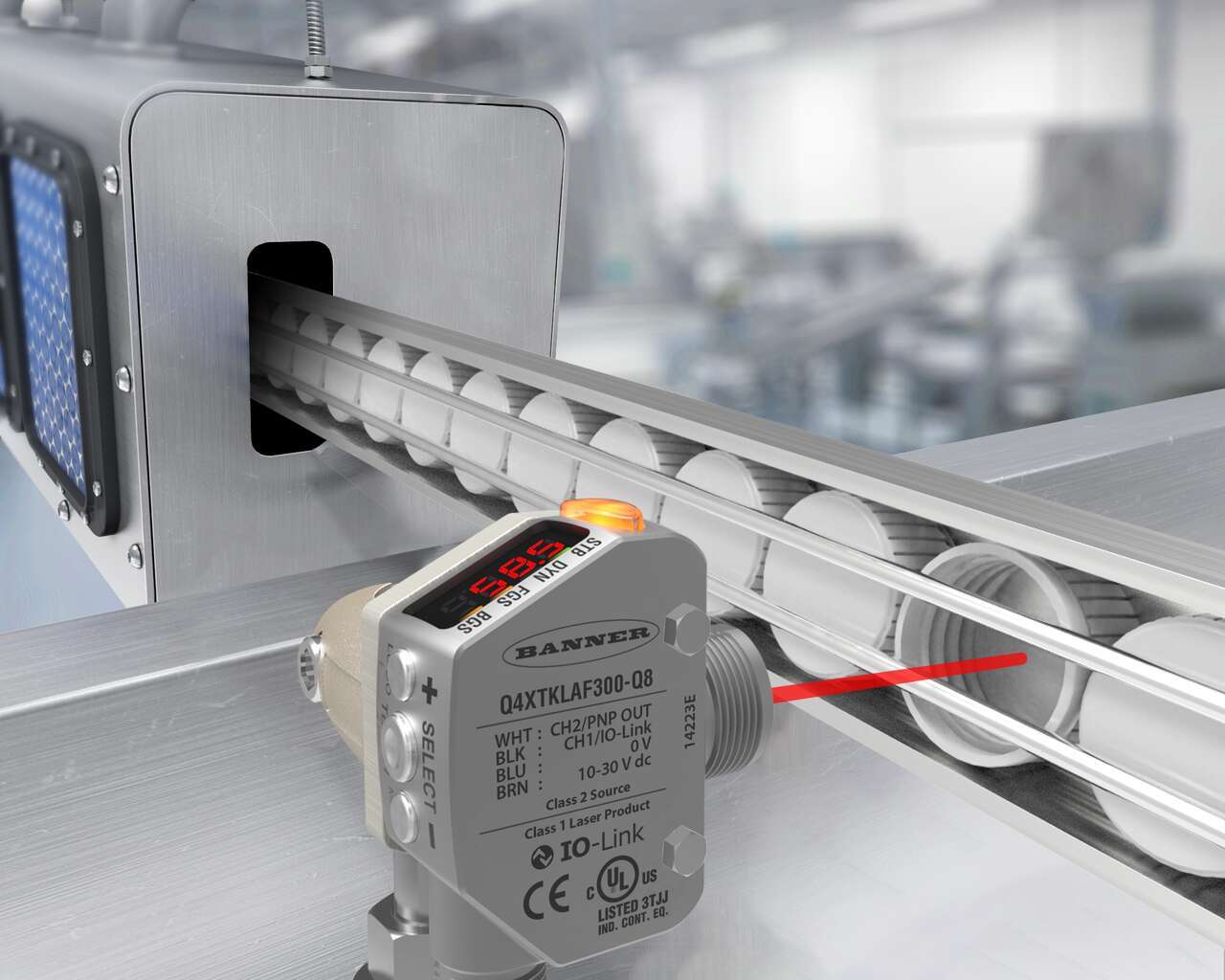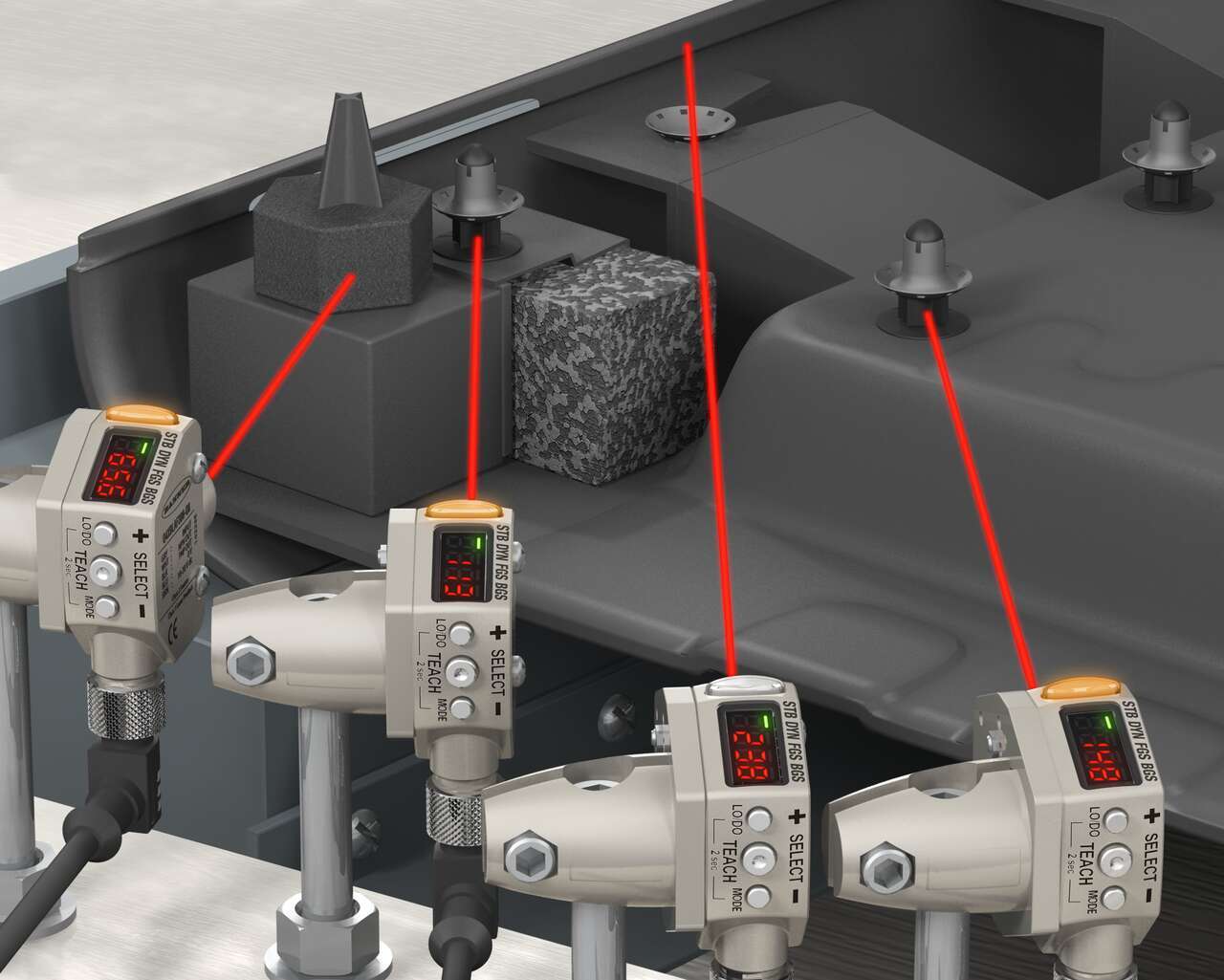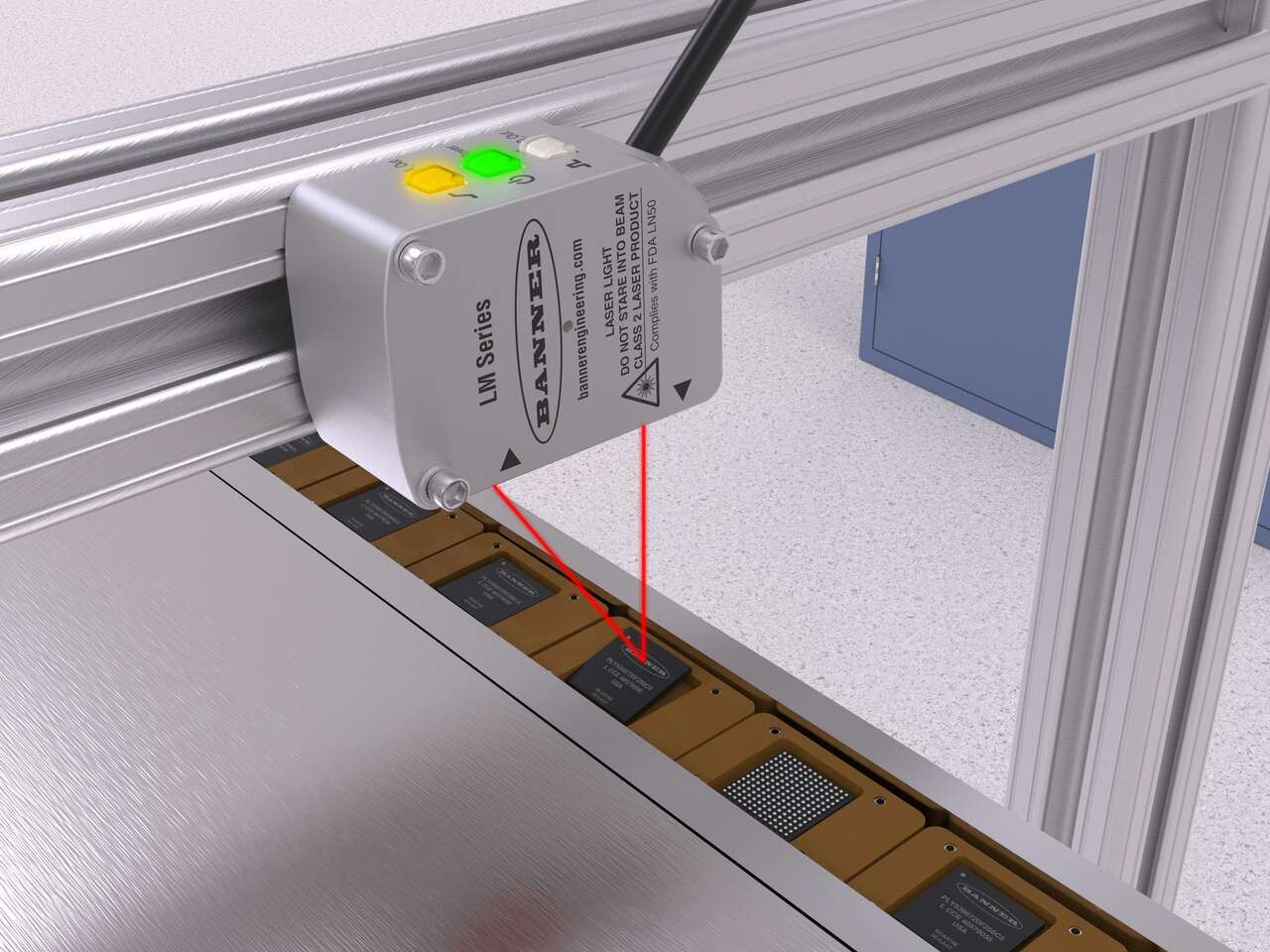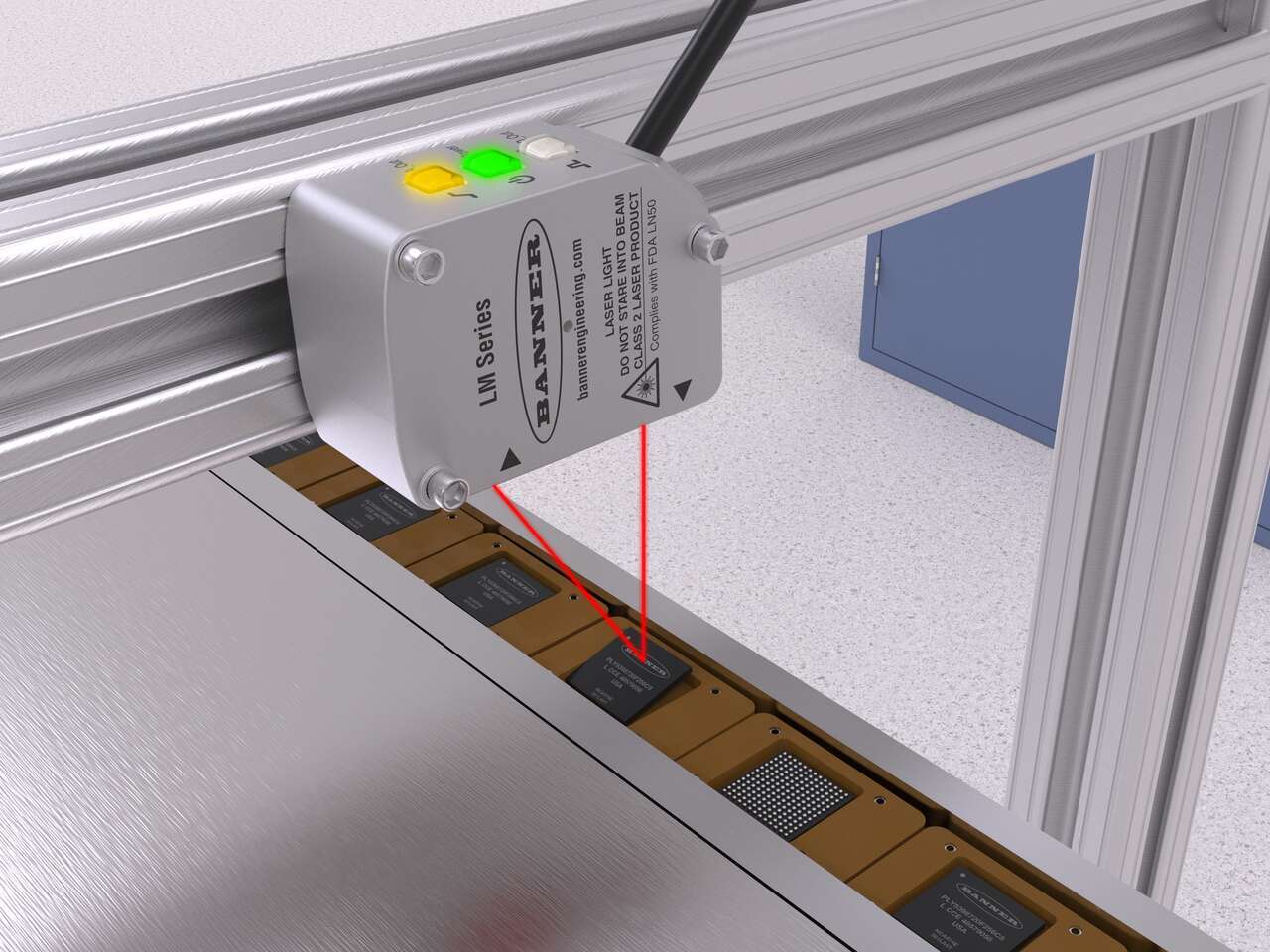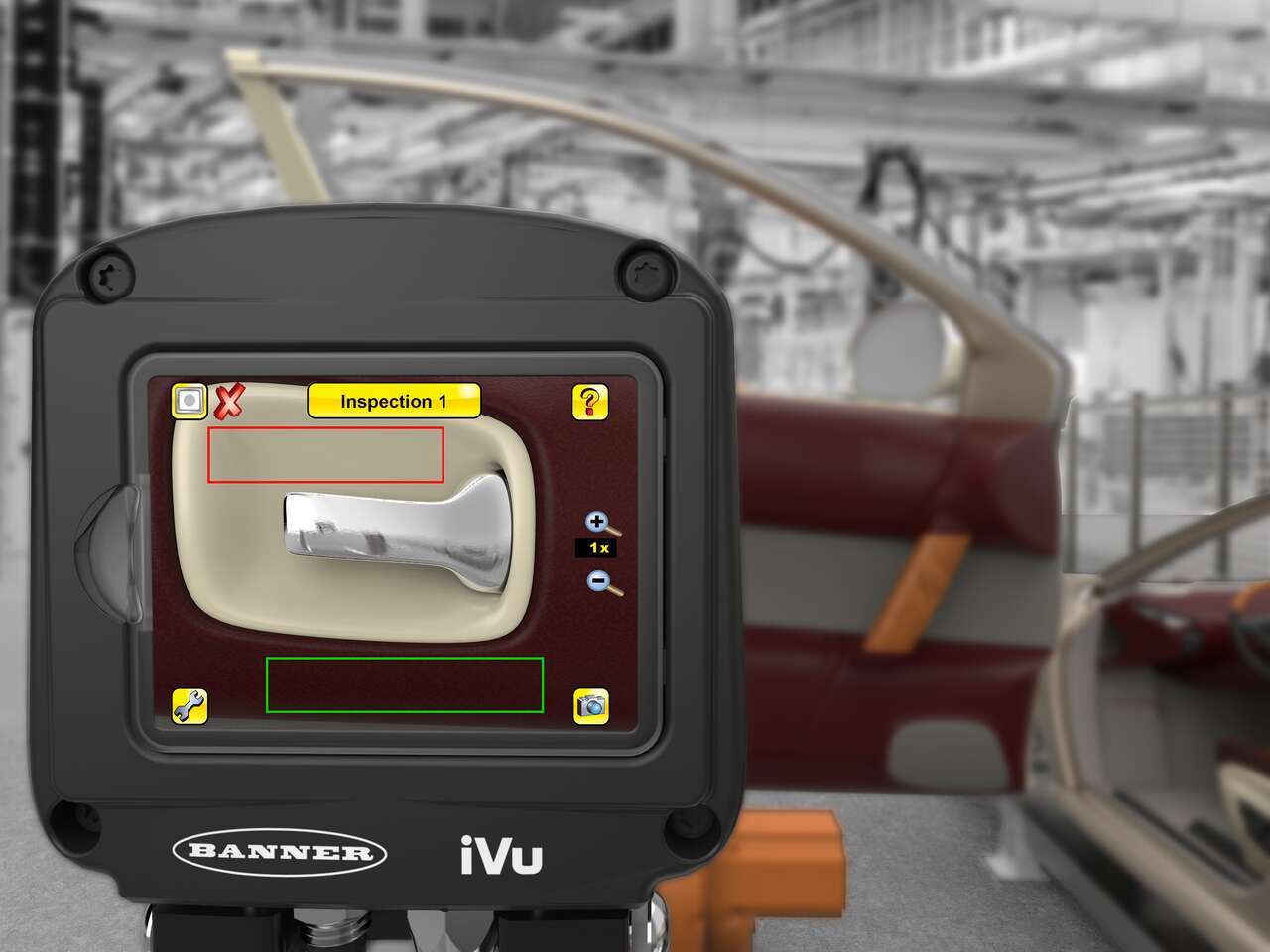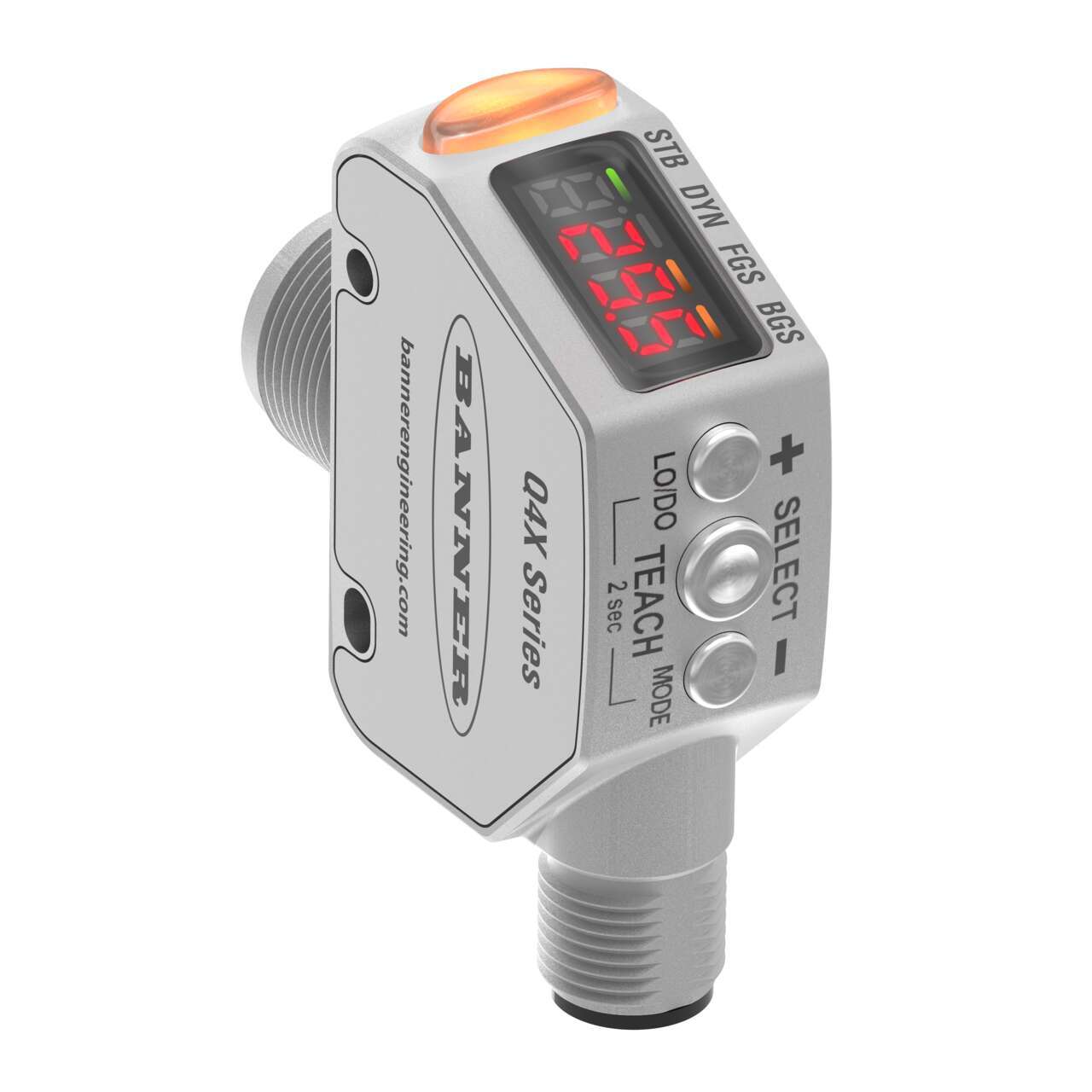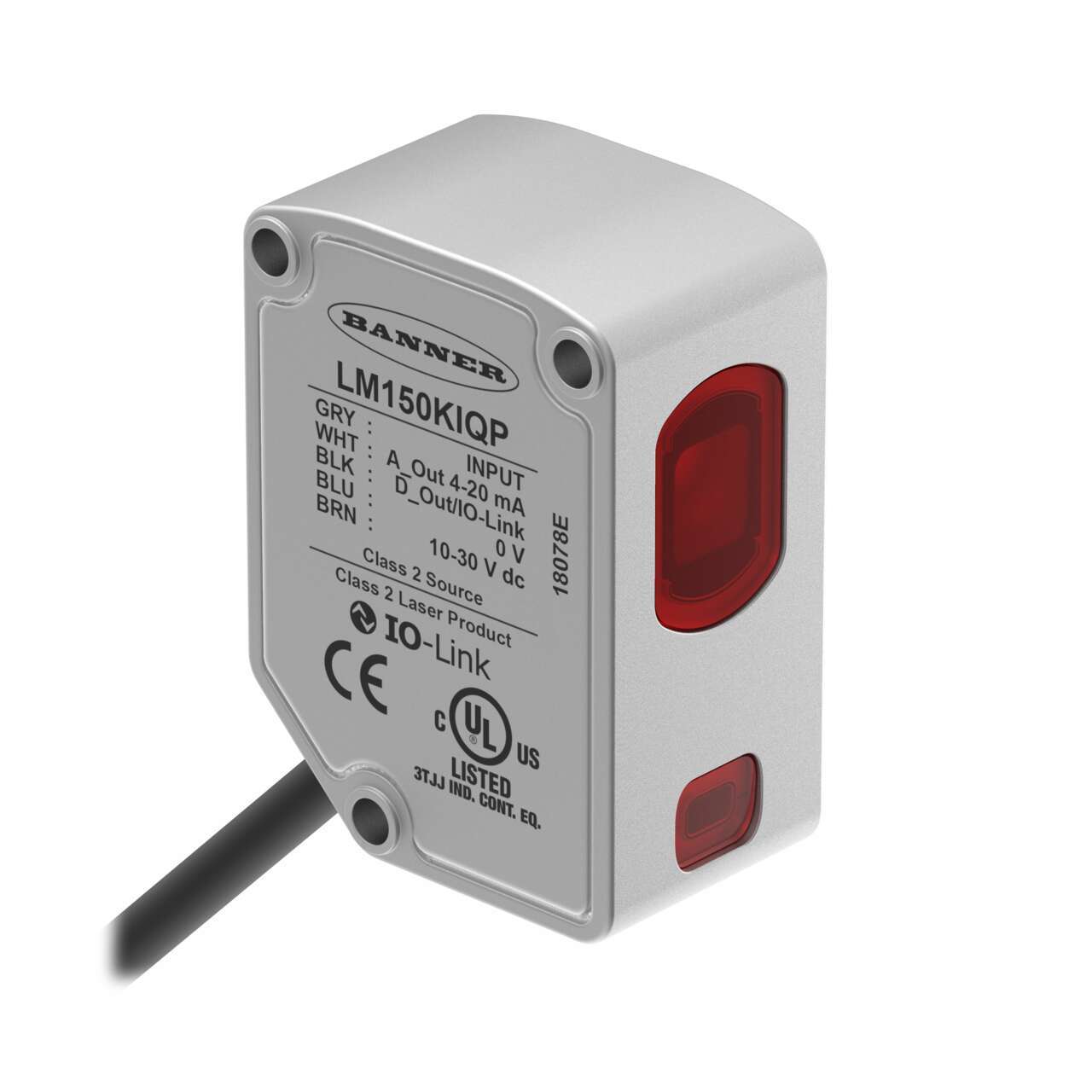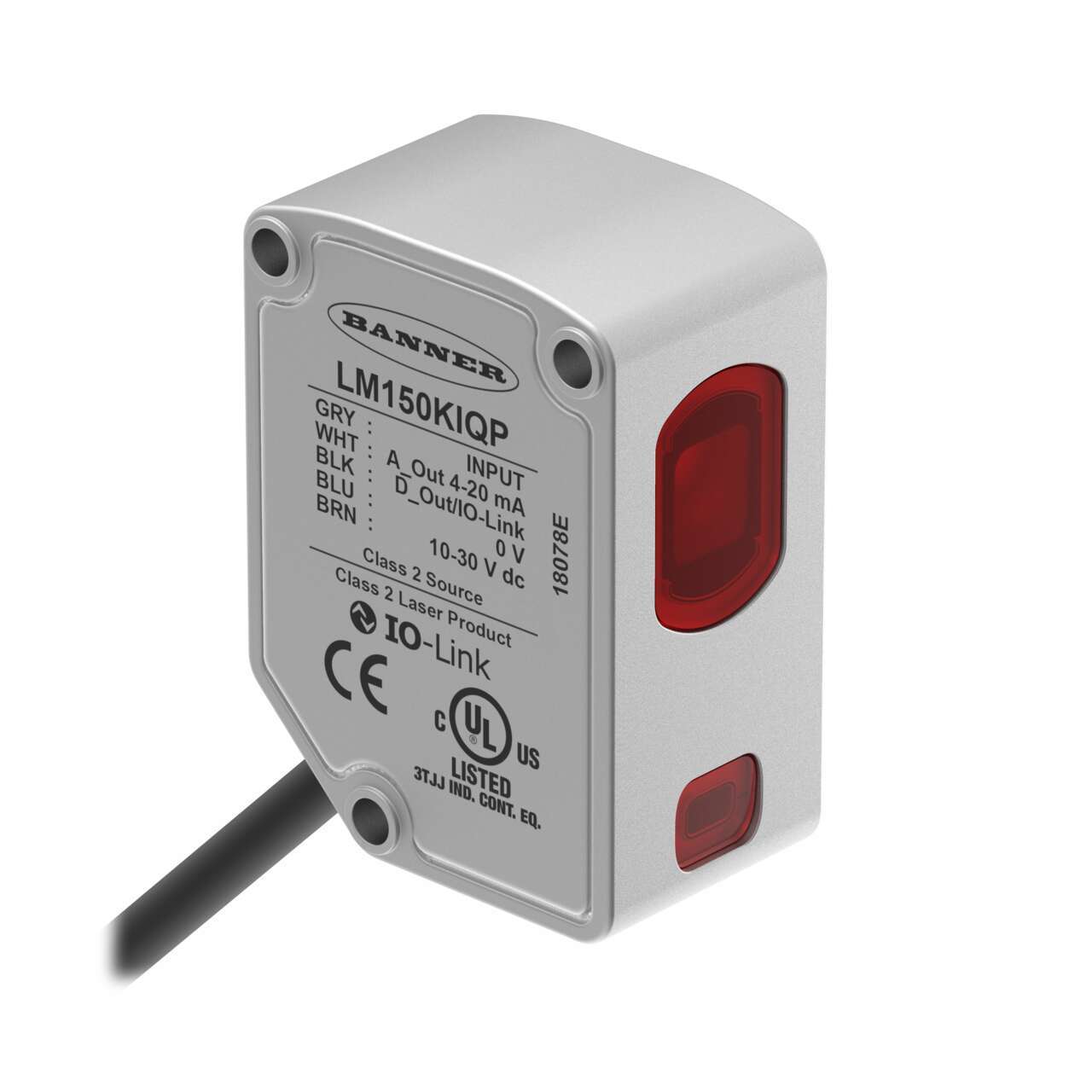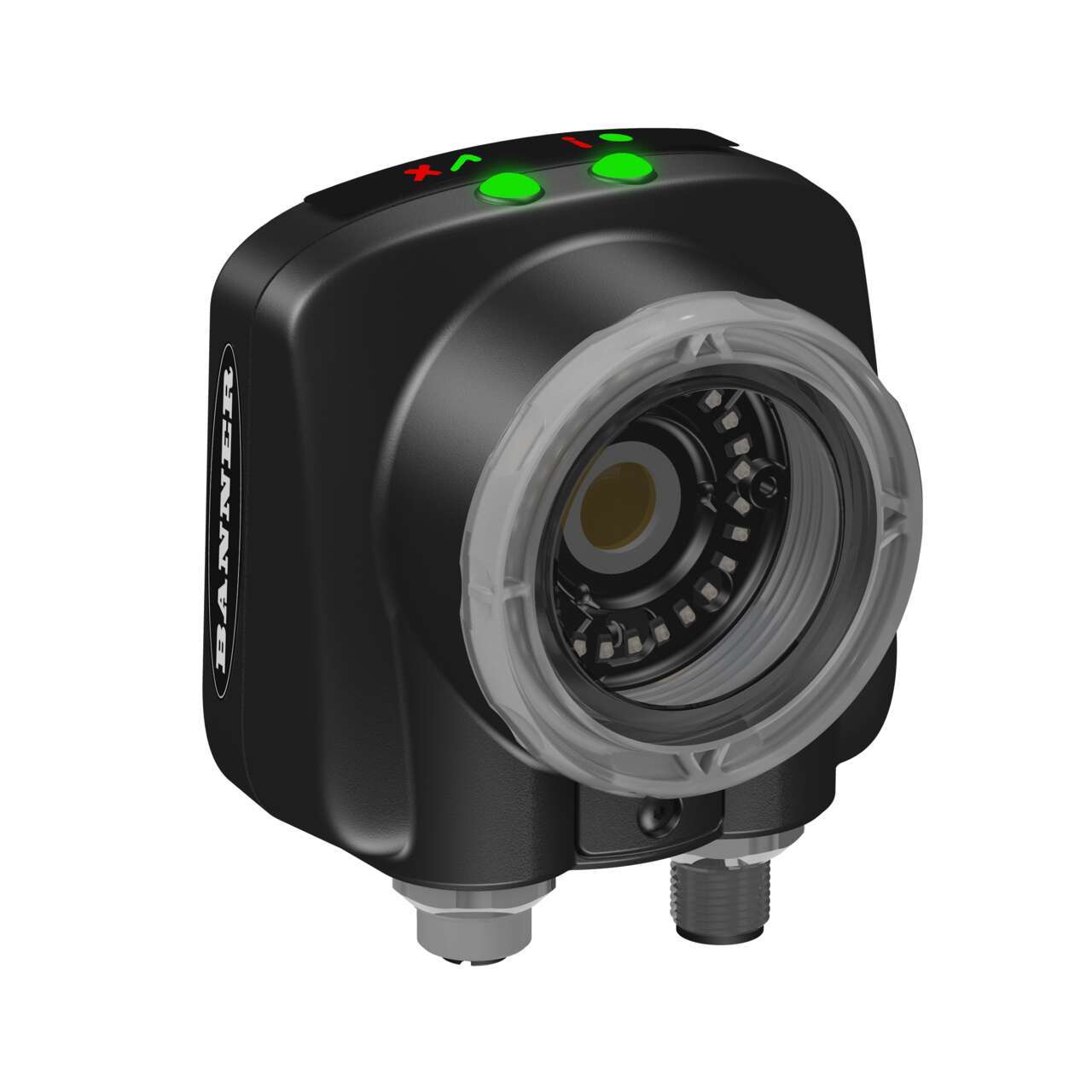Automated Quality Control
Identify Issues Early and Save Costs
Defects and errors in parts and components can negatively impact downstream processes, production efficiency, and product quality.
Consistent, reliable inspection of parts and components can help manufacturers identify potential issues early on in the manufacturing process, minimizing costly lost product and production time.
Banner’s expertise in a range of sensing technologies allows us to offer optimal quality control solutions for detecting defects, measuring components, monitoring tolerances, and verifying attributes.
Rugged, Reliable Sensors are Required
Automated quality control applications often involve inspecting challenging targets, such a clear and reflective targets, extremely dark targets against a dark background, multicolored targets with many color transitions, and targets moving at high speeds.
Depending on the application, the smallest errors can become critical failures further down the line, making precise inspection a must. In some applications, quality control inspections occur in extremely harsh environments, where sensing technology can be exposed to dust and dirt, high pressure washdown, machine vibration, and more.
Banner Engineering offers a range of rugged, reliable photoelectric, laser measurement, and vision sensors that improve your automated quality control processes--even in the most challenging applications. Keep reading to learn more, or contact us to discuss your specific application.
Reliably Inspect Every Target
Fast, reliable quality inspections are essential to ensuring consistent throughput without sacrificing quality.
Thanks to advancements in laser measurement technology, sensors can now measure traditionally challenging targets (including clear, reflective, and low contrast targets). For example, the Q4X laser measurement sensor reliably inspects extremely dark targets on aginast an equally dark background.
in addition, thanks to dual mode which measures both distance and light intensity, smart laser measurement sensors from Banner can reliably inspect both distance-based and contrast-based conditions with a single device, which saves inventory costs.
Furthermore, with IO-Link communication, users can track sensor performance, identify trends in inspection results, and even predict when maintenance is needed so that simple problems like a dirty lens can be fixed prior to sensor failure.
Maintain Tight Tolerances
Quality control applications that require precise measurement can be some of the most challenging applications to solve. Very tight tolerance requirements demand a reliable solution that can measure parts in micrometers to detect the smallest variations in part size, thickness, orientation, placement, and more. Ensuring parts meet strict quality standards can help reduce problems downstream and reduce the risk of product recall due to imperfect parts.
Laser measurement sensors are a common solution for precise part inspections. However, real world conditions—including variations in target color and reflectivity, fluctuations in ambient temperature, and vibration from improper mounting—can make precise measurement challenging, even for laser sensors that perform well in perfect laboratory conditions.
The LM Series precision measurement sensor from Banner Engineering offers best-in-class performance with superior stability, reliability, and precision for real world targets.
Prevent Errors at the Source
Error proofing refers to preventing a process from resulting in defects by stopping mistakes at the source, rather than down the line. Preventing mistakes at the source can significantly improve productivity by keeping mistakes from becoming bigger problems downstream.
In automated processes, error proofing solutions like sensors and vision systems can be used to ensure poblems are corrected before a process can proceed.
Meanwhile, in manual processes, such as bin picking, visual warnings clearly indicate to operators when their actions are correct or incorrect using colored and/or animated lights. Light-guided assembly is an excellent example of using visual indication for error-proofing.
Laser Distance Sensor
Versatile, rugged laser distance sensors offering superior performance and capable of detecting sub-millimeter changes in distance.
- Discrete, analog (0 to 10 V or 4 to 20 mA), clear object, and IO-Link models available
- Reliable sensing range from as close as 25 mm and as far as 610 mm
- Detects across a variety of target colors, materials and surfaces based on distance
- Dual teach mode (intensity + distance) is ideal for error-proofing applications and enables clear object detection with no retro-reflector required
- Robust housing rated to IP69K with FDA-grade stainless steel
Precision Measurement Sensor
The LM Series precision measurement sensor offers best-in-class performance and real-world stability in a compact device with an intuitive user experience.
- Precise measurements with 0.002 - 0.004 mm resolution
- Fast 0.5 ms response speed and 0.25 ms sampling rate
- Compact housing designed to fit into small spaces
- Best-in-class thermal and mechanical stability
- IP67 and Grade 316 stainless steel for chemical compatibility
- Optional Remote Sensor Display (RSD) for remote monitoring and setup
- Supports Industry 4.0/IIoT with IO-Link®, discrete, and analog outputs in one model
- High resolution distance measurements with RS-232 digital export via communication cable
iVu Series
Vision Sensor
The iVu and iVu Color Image Sensors are used to monitor parts for type, size, orientation, shape, location, and color or color variations.
- All-in-one solution with camera, controller, lens, and light included in one package
- Configure in minutes using Vision Manager PC software, onboard touchscreen display, or remote touchscreen
- Inspect multiple points with a variety of grayscale or color tools
- Compact, rugged, IP67 housing available with integrated ring lights including red, blue, green, white, infrared or UV
- Interchangeable lenses, including C-mount, for maximum application flexibility
- EtherNet/IP™, Modbus/TCP, PROFINET®, PCCC, and Serial RS-232
